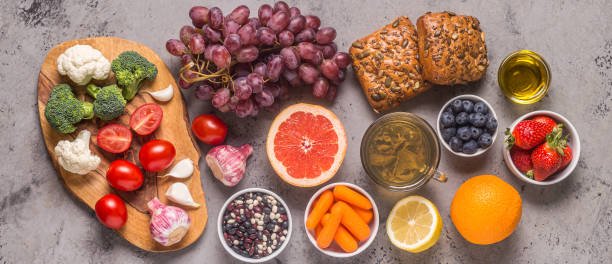Ever wonder why you feel like crashing after lunch, or why your mornings start strong but your energy fizzles out by mid-afternoon? It’s not always just stress, age, or lack of sleep. Sometimes, it’s the food on your plate quietly draining your energy.
What you eat plays a powerful role in how you feel. Certain foods spike your blood sugar, inflame your gut, stress your hormones, and leave you running on empty, even if you think you’re eating “pretty healthy.”
Let’s break down the most common foods that drain your energy, how to spot them, and what to eat instead to keep your body fueled and focused.
1. Refined Carbs & Sugary Snacks
Pastries, white toast, and sugary cereals are easy, comforting, and everywhere. But these refined carbohydrates and added sugars are like striking a match: they give you a quick spark of energy, followed by a hard crash. That crash can leave you feeling foggy, irritable, and reaching for another sweet treat to bring you back up, starting the whole cycle again.
Refined carbs also contribute to insulin resistance over time, which not only drains your energy but can mess with your metabolism and hormones, too.
Try instead:
- Warm gluten-free oats topped with chia seeds, cinnamon, and fresh berries
- A protein smoothie with plant-based milk, spinach, collagen, and a handful of berries
- Almond flour banana muffins made with real ingredients and natural sweeteners
2. Processed Snack Foods
Chips, packaged granola bars, flavored crackers, and many “healthy” snack bars are often loaded with refined oils, added sugars, preservatives, and artificial flavors. These ingredients may be convenient, but they put a serious strain on your digestive system and liver, both of which are key players in energy production.
Plus, processed snacks are typically low in protein and fiber, which means they won’t keep you full or energized for long.
Try instead:
- A handful of roasted almonds or walnuts for healthy fats and minerals
- Avocado toast on gluten-free bread, topped with hemp seeds or a poached egg
- Crunchy raw veggies like cucumbers, bell peppers, and carrots with guacamole or hummus
3. Too Much Caffeine
Caffeine can be a useful pick-me-up, but when you’re relying on multiple cups of coffee or energy drinks to survive the day, it may be doing more harm than good. Over time, excess caffeine can wear down your adrenal glands and disrupt your natural cortisol rhythm, leaving you more tired in the long run.

It can also impact your hydration, sleep quality and even spike anxiety or jitteriness.
Try instead:
- A warm cup of matcha, which offers a more balanced caffeine boost with calming L-theanine
- Adaptogenic herbal teas like tulsi, ashwagandha, or reishi to support stress resilience
- Coconut water with a pinch of sea salt for natural hydration and electrolytes
4. Dairy Products
Many people don’t realize that dairy can be an energy drain, even if they aren’t lactose intolerant. Dairy products, especially milk, cheese, and yogurt made from cow’s milk, can trigger low-grade inflammation, digestive bloating, mucus production, and fatigue. These symptoms often go unnoticed until dairy is removed from the diet.
For those with hormonal imbalances or gut issues, dairy can also interfere with healing and increase cortisol levels.
Try instead:
- Unsweetened almond, coconut, or cashew milk in your coffee or smoothies
- Coconut-based or almond-based yogurt with added probiotics
- Nutritional yeast to add a “cheesy” flavor to dishes without the dairy
5. Fried and Greasy Foods
Fried chicken, French fries, and takeout may satisfy cravings, but they take a heavy toll on your digestion and energy. These foods are often cooked in inflammatory seed oils and loaded with trans fats that slow down metabolism and promote oxidative stress.
Because greasy foods are harder to break down, they divert energy toward digestion—making you feel sluggish, tired, and bloated.
Try instead:
- Grilled or baked salmon rich in omega-3s, paired with roasted vegetables
- Air-fried sweet potatoes drizzled with olive oil and sea salt
- Oven-roasted chicken with herbs and lemon for a lighter, satisfying meal
6. Artificial Sweeteners
They may be “calorie-free,” but artificial sweeteners like aspartame, sucralose, and saccharin can still affect your body’s ability to regulate hunger and blood sugar. They can disrupt your gut microbiome, increase sugar cravings, and even cause brain fog—ironically doing the opposite of what they’re marketed to do.
Some studies suggest they may also increase insulin response, despite having no sugar content.
Try instead:
- Monk fruit sweetener for a clean, natural alternative with no blood sugar spike
- Raw honey or pure maple syrup in small amounts (if tolerated)
- Pure stevia leaf extract (not blended with other fillers or sugar alcohols)
7. Alcohol (Even Just One Glass)
A glass of wine or cocktail at the end of the day may feel relaxing, but alcohol is sneaky when it comes to energy. Even small amounts can impair deep sleep, dehydrate you, and put extra stress on your liver, one of your key detox and energy-producing organs.
Alcohol also interferes with blood sugar and can lead to morning fatigue, irritability, and brain fog.
Try instead:
- Sparkling water with fresh lemon, mint, or cucumber slices
- Non-alcoholic botanical drinks made with adaptogens or herbs
- A splash of kombucha over ice for a bubbly, gut-supporting drink
Why It Matters
Your body thrives on stable blood sugar, anti-inflammatory nutrition, and nutrient-dense meals. Foods that spike, stress, or deplete your system will always leave you dragging, no matter how much you sleep or how many supplements you take.

The truth is: food is information. Every bite either supports your energy or sabotages it.
At Kairos Health & Wellness, we take a root-cause, functional approach to energy, fatigue, and nutrition. We help you discover not only what to eat, but why your body responds the way it does.
Meet Lola – Your Guide to Clean Energy
If you’re struggling with low energy, brain fog, mood swings, or just not feeling like yourself, Lola is here to help.
She’s one of our incredible providers at Kairos Health & Wellness, and she’s not your average practitioner. As a Board-Certified Nurse Practitioner with advanced training in hormone optimization, root-cause healing, and functional medicine, Lola takes the time to truly understand you.
Whether it’s your diet, your stress levels, your hormones, or all of the above, she creates a care plan that works with your body, not against it. The goal? To help you feel like yourself again… naturally.
Conclusion
If your daily routine feels like a constant battle with fatigue, it’s time to stop blaming yourself—and start looking at the real root causes. What you eat matters. And with a few simple swaps, your body can start to reset, recover, and re-energize.
If you’re ready to take that first step toward lasting energy, better focus, and a more vibrant you, contact Kairos Health and Wellness for guidance from experts who understand the big picture.
Frequently Asked Questions – Foods That Drain Energy
Q: How do I know if food is affecting my energy?
If you feel tired or foggy after eating, crash in the afternoon, or need caffeine to get through the day, food might be playing a bigger role than you realize. Keeping a food and symptom journal can help identify patterns.
Q: Are there specific foods that support energy instead of draining it?
Yes! Whole foods like leafy greens, lean proteins, nuts, seeds, berries, and complex carbs like sweet potatoes help stabilize blood sugar and provide lasting energy.
Q: Can food really impact my hormones and mood?
Absolutely. What you eat affects your gut, liver, and hormone balance—all of which play key roles in how energetic, focused, and emotionally steady you feel.
Q: What’s the first step to improving my diet for energy?
Start by cutting back on sugar and processed foods, then focus on building meals around protein, healthy fats, and fiber-rich veggies. For personalized help, working with a functional medicine provider can make a huge difference.


